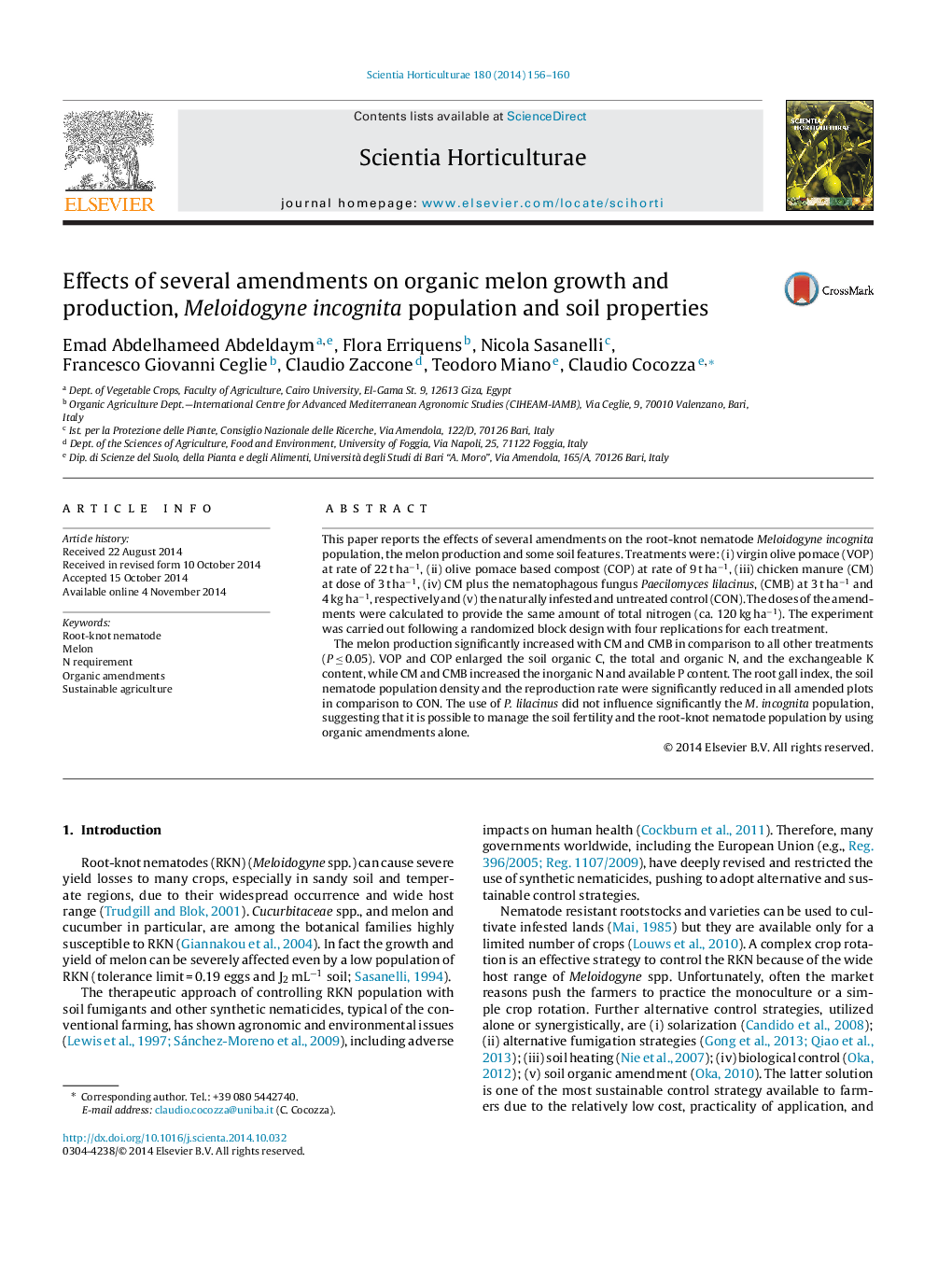| Article ID | Journal | Published Year | Pages | File Type |
|---|---|---|---|---|
| 4566540 | Scientia Horticulturae | 2014 | 5 Pages |
•We contained the Meloidogyne incognita population using organic amendments.•Chicken manure improve the melon production.•Paecilomices lilacinus did not influence the M. incognita population.•A sustainable way to manage the soil fertility and nematode population is proposed.
This paper reports the effects of several amendments on the root-knot nematode Meloidogyne incognita population, the melon production and some soil features. Treatments were: (i) virgin olive pomace (VOP) at rate of 22 t ha−1, (ii) olive pomace based compost (COP) at rate of 9 t ha−1, (iii) chicken manure (CM) at dose of 3 t ha−1, (iv) CM plus the nematophagous fungus Paecilomyces lilacinus, (CMB) at 3 t ha−1 and 4 kg ha−1, respectively and (v) the naturally infested and untreated control (CON). The doses of the amendments were calculated to provide the same amount of total nitrogen (ca. 120 kg ha−1). The experiment was carried out following a randomized block design with four replications for each treatment.The melon production significantly increased with CM and CMB in comparison to all other treatments (P ≤ 0.05). VOP and COP enlarged the soil organic C, the total and organic N, and the exchangeable K content, while CM and CMB increased the inorganic N and available P content. The root gall index, the soil nematode population density and the reproduction rate were significantly reduced in all amended plots in comparison to CON. The use of P. lilacinus did not influence significantly the M. incognita population, suggesting that it is possible to manage the soil fertility and the root-knot nematode population by using organic amendments alone.
